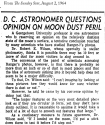Introduction
Songs and people find each other. How they find each other changes over time, but the songs are always present, weaving in and out of the history and stories, stages and poetry of their time. Song sheets and sheet music played a large part in bringing songs to the people in the 19th and 20th centuries, and some found their way into collections at the Booth Family Center for Special Collections.
These collections hold innumerable love songs. For the most part you won’t see those in this exhibition. There are songs with racial, gender and political overtones that we would find completely inappropriate today. You won’t see those here either. There are many, many songs about mothers—so many, in fact, that C. Henry was moved in the 1800s to pen "Oh! Write Me a Song of My Father," pleading that some balance be restored.
There are also songs about industry. Oil, coal and steam were beginning to benefit and disrupt the everyday, and songs gave people a way to vent their elation, frustration or fear. There are songs about patriotism, moral virtue, and heroic exploits. Broadway musical songs of all sorts spread, often via sheet music, from New York to pianos and vocalists across the country.
The songs here speak to their time and, in one way or another, they speak to what was happening on this campus. See here a few ways in which their themes intersect with the daily life of Georgetown.
“Oh! Write Me a Song of My Father”
Words and music by C. Henry. New York: H. De Marsan, ca. 1850s
American Song Sheet Collection, GTM-GAMMS240

“Three Bells”
New York: H. De Marsan, 1860
American Song Sheet Collection, GTM-GAMMS240
and


Leaves of Grass
Walt Whitman
Philadelphia: David McKay, 1884
Open to “Song of Myself 33”
Rare Book Collections PS3201.1884b
In 1853 the ship SS San Francisco sailed out of New York on her way to California. She ran into a terrible storm two days out, which completely disabled her and took the lives of over 100 of her passengers. Two ships sighted her but sailed by without attempting rescue. The ship Kilby did render aid, and managed to take some passengers on before the ships were torn apart in the storm. This song, and Walt Whitman’s verse in “Song of Myself” regarding “the large hearts of heroes,” refer to the Scottish ship Three Bells and Captain Robert Crighton, who stood by the San Francisco for three days in the storm before finding a way, with another ship called the Antarctic, to rescue all aboard.

“God Bless America”
Words and music by Irving Berlin. New York: Irving Berlin Inc., 1939.
George H. O’Connor Papers GTM-850501

“Oil on the Brain”
Song and Chorus by Eastburn. Philadelphia: J. Marsh, 1864.
Helen King Boyer Collection, GTM-GAMMS257
Songs of Old
Before song sheets and sheet music, songs and people found one another in many different ways. Here from the collections are a few examples.
Black-letter Broadside Ballads (facsimiles)
“A New Song to Drive Away Cold Winter, Between Robin Hood and the Jovial Tinker”
1684-1686
Magdalene College, Pepys Ballads 2.107; EBBA 20729
“Cupid’s Revenge”
Date Unknown
Houghton Library, Hazlitt EC65; EBBA 35447
These facsimiles are taken from the English Broadside Ballad Archive, University of California Santa Barbara. Visit ebba.english.ucsb.edu to see thousands more.
“The Wealth of the Cottage”
from Samuel Henry Alken’s Illustrations to Popular Songs
London: Thomas McLean, 1822
Soft-ground etching with hand coloring on paper
University Art Collection #1999.16.2
and
The Quaver; or, Songster’s Pocket Companion: Containing Upwards of One Thousand of the Most Popular Songs, Toasts, Sentiments and Recitations.
London: Charles Jones, 1844
Open to “The Wealth of the Cottage”
On Loan
The War Between the States and The War to End All Wars
The Battle of Bull Run
The “Battle of Bull-Run” song sheet is dedicated to the 69th New York Regiment, billeted on Georgetown’s campus for three weeks in 1861. The 69th, numbering 1,400 men, arrived on campus on May 4, 1861. The College was given less than 24 hours’ notice of their arrival. A brochure from the Blue Grey Weekend commemorating the Civil War Centennial is open to estimates of how many Georgetown men served in the War, and where.
“Battle of Bull-Run”
New York: H. De Marsan, after 1861
American Song Sheet Collection, GTM-GAMMS240
Notice of Occupation by the 69th New York Regiment, May 4, 1861
John Early, S.J. Papers GTM-GAMMS22
Civil War Centennial Brochure, Georgetown University Alumni Association
May 5-6, 1961
University Archives: Students 1959-1966 GTA-000099-DS
What Are You Going to do for Uncle Sammy?
What are you going to do for Uncle Sammy?
What are you going to do to help the boys?
If you mean to stay at home while they’re fighting o’er the foam
The least that you can do is buy a Liberty Bond or two…
Gus Kahn’s lyrics were uncompromising, and in that spirit the Georgetown College Orchestra put on a Liberty Loan Concert in May 1918. On the program was “Keep the Home Fires Burning,” performed by Rober M. O’Lone, C’1918.
“What Are You Going to Do To Help The Boys?”
Lyric by Gus Kahn, Music by Egbert Van Alstyne. Jerome H. Remick & Co., 1918
Miscellaneous Sheet Music Collection GRB-000003
“Keep the Home-Fires Burning”
Words by Lena Guilbert Ford, Music by Ivor Novello. New York: Chappell & Co. Ltd., 1915
Miscellaneous Sheet Music Collection GRB-000003
Liberty Loan Concert Program
May 16, 1918
University Archives: Georgetown University Music GTA-000275-DS
Liberty Loan Campaign Thank You Letter and Medal (made from captured German cannon)
June 30, 1919
George H. O’Connor Papers GTM-850501
"Father’s a drunkard and Mother is dead"
Songs of the temperance movement(s) didn’t mince their words. Local temperance organizations in the United States and Europe in the early 1800s grew steadily into an international movement. A 1909 conference in London founded an International Prohibition Confederation. The movement had a friend on Georgetown’s campus in J. Havens Richards, S.J.
"Come Home, Father"
Words and Music by Henry Clay Work
Chicago: Root & Cady, 1864
Helen King Boyer Collection, GTM-GAMMS257
"Drunkard's Lone Child"
Philadelphia: J. H. Johnson, mid-1800s
American Song Sheet Collection, GTM-GAMMS240
J. Havens Richards, S.J.
President of Georgetown University from 1888 to 1898, Richards embarked on Georgetown's first systematic fundraising campaign and was able to complete Healy Hall, build Dahlgren Chapel and open the University Hospital as a result. He also advocated temperance. Notes for a series of addresses he made to temperance societies in Boston in 1906 and 1907 can be found in his papers. Three shown here discuss “Despondency as a Cause of Intemperance,” “Causes of Drunkenness—Conviviality,” and “Causes of Intemperance—The Saloon.”
University Archives: Photographic Collection GTA-000109
J. Havens Richards, S.J. Papers, GTM-000010
World War II’s Defense Fund
“As Time Goes By”
Words and music by Herman Hupfeld. New York: Harms, Inc., 1941
“Buy United States War Savings Bonds and Stamps” in lower left corner
On Loan
War Stamp Dance
November 20, 1943
“Music by the Cadets of Georgetown”
University Archives: Georgetown University Music GTA-000275-DS
The 4th War Loan Dance
February 5, 1944
University Archives: Georgetown University Music GTA-000275-DS
Glees and Other Musical Numbers
The Glee Club of Georgetown did sing a few popular songs, but its repertoire is reflected more accurately by an advertisement on the back of a piece of sheet music, offering “Singing Books for Male Voices.” The Glee Club’s travels are documented by the many programs held in the University Archives and other collections, just a handful of which are displayed here.
Musicals also found their way to campus. A song from the then-wildly popular musical Florodora, which enjoyed successful runs in London’s West End and on Broadway, was performed at the opening of Gaston Hall. And over 35 years after Guys and Dolls won the Tony for best musical, Georgetown’s Mask and Bauble Dramatic Society production was enthusiastically received.
"Glee": Defined
Excerpted from Noah Webster’s An American Dictionary of the English Language…
New York: S. Converse, 1828.
Rare Book Collections 88A42
Advertisement for “Singing Books for Male Voices,” including glees and sacred music
On the back of sheet music for “The Cricket Polka” by M. F. Huse, 1879.
Earle B. Mayfield Papers, GTM-810101
Programs
Literary and Musical Celebration in honor of St. Cecilia, at Georgetown College, D.C.
November 22, 1866
Glee Banjo Mandolin Concert 1899 Programme
Gaston Hall, January 25, 1899
The Georgetown University Glee Club Mi-Careme Concert
Gaston Hall, March 18, 1929
University Archives: Georgetown University Music GTA-000275-DS
Georgetown University Glee Club, In celebration of Pan American Week
Hall of the Americas, Pan American Union, April 12, 1957
1961 Inaugural Concert, The National Symphony Orchestra
with The Georgetown University Glee Club and The Howard University Choir
Constitution Hall, January 19, 1961
Georgetown University Club of Puerto Rico, Glee Club Tournee
Puerto Rico, December 27, 1963-January 6, 1964
Annual Georgetown Glee Club Concert and Dance
Biltmore Hotel, January 28, 1966
Paul Hume Papers GTM-GAMMS228
Florodora
“Shade of the Palm” from Florodora
Book by Owen Hall, Music by Leslie Stuart. London: Francis, Day & Hunter, 1900.
George H. O’Connor Papers GTM-850501
and
Program for the Opening of Gaston Hall
November 4th, 1901
Note #5 of the First Part: Philip A. Scantling C’1903 sang a song from the hit Broadway musical Florodora.
George H. O’Connor Papers GTM-850501
Guys and Dolls
“If I Were a Bell” from Guys and Dolls
Music and Lyrics by Frank Loesser. New York: Edwin H. Morris and Company, Inc., 1950.
Miscellaneous Sheet Music Collection GRB-000003
and
Mask and Bauble Dramatic Society Program for Guys and Dolls
Spring 1987
University Archives: Mask and Bauble Dramatic Society GTA-030709
Steam: "Wonders sure will never cease…"
The cautionary tale of the song "The Steam-Arm," sung at Vauxhall in London as early as 1835, is one composer’s vision of the benefits of new technologies. The Treasury Department commissioned the Franklin Institute to conduct a study on the explosion of steam boilers in 1836. Georgetown’s Philodemic Society was debating the advantages of machinery in 1875. Basic directions for the operation of a low pressure steam heating system seem rather complex and prone to imperiling error even in 1914.
A steam heating apparatus was installed in Old North in June of 1896, and in Dahlgren Chapel in November, 1896. All is well. The campus is still here.
Georgetown College Philodemic Society Proceedings, November 18th, 1875
“The topic of the debate two weeks hence shall be ‘Has the Invention of Machinery proved advantageous to the Common People?’”
University Archives: Debate: Philodemic 1866-1900, GTA-000588
Report to the Department of the Treasury (and thence to Congress) on steam boiler explosions, conducted by the Franklin Institute
24th Congress, 1st Session, Document No. 162, March 1, 1836
Rare Book Collections TJ299.F72 1836
How to Run the Steam Outfit: Low Pressure Steam Heating
J. Hamilton, 1914
Open to “General Rules for Boilers”
Rare Book Collections TH7570.H69 1914
Contracts
Zellers & Co. Contract for the installation of a Low-Pressure Steam-Heating Apparatus, [Old] North Building, Georgetown University, June 26, 1896
and
Johnson & Morris Contract for Steam Heating Apparatus, to be furnished and erected in the Dahlgren Chapel, Georgetown University, November 7th, 1896
University Archives: Buildings, GTA000321
Flying to the Moon
July 20 marks the 50th anniversary of Apollo 11’s lunar module landing on the moon. Music went to the moon with the astronauts; you can listen to the onboard audio from Apollo 11 on NASA’s website to discover the actual musical tastes of the first men on the moon. But perhaps the song most associated with the Apollo missions is "Fly Me to the Moon."
“Fly Me to the Moon”
Words and Music by Bart Howard. New York: Almanac Music, Inc., 1954.
Miscellaneous Sheet Music Collection GRB-000003
Lunar Globe
The United States landed the first men on the moon, but the Soviets took the first photos of the far side of the moon. This 1967 Soviet globe likely came to the Archives from the Georgetown University Astronomical Observatory. Professor Yuri Naumovich Lipsky (1909–1978) led the study of the first photographs of the far side of the moon. The first full globes of the moon’s surface, as well as selenographic maps, were produced under his direction.
University Archives Collections
Exhibition by Stephanie Hughes, with contributions from Lynn Conway, Jayme Kurland, Beth Marhanka, and Christen Runge.





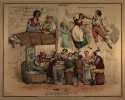









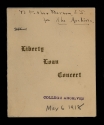








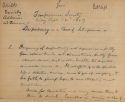






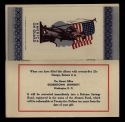


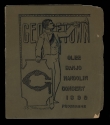







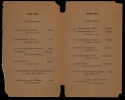








![Steam Contract, [Old] North](/sites/default/files/x/SteamOldNorth_thumb.jpg)




